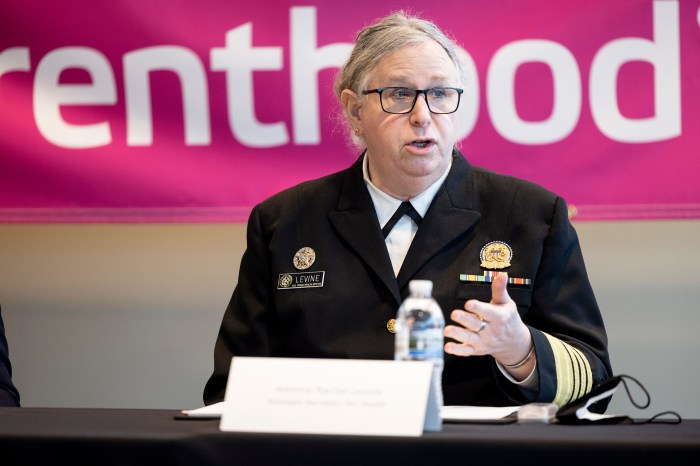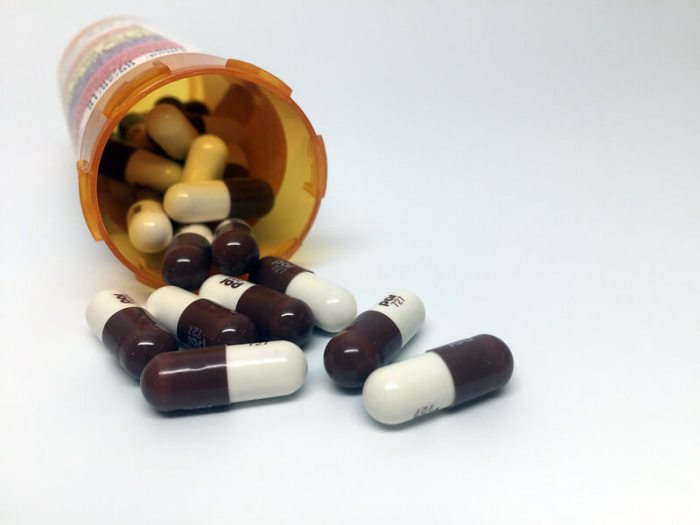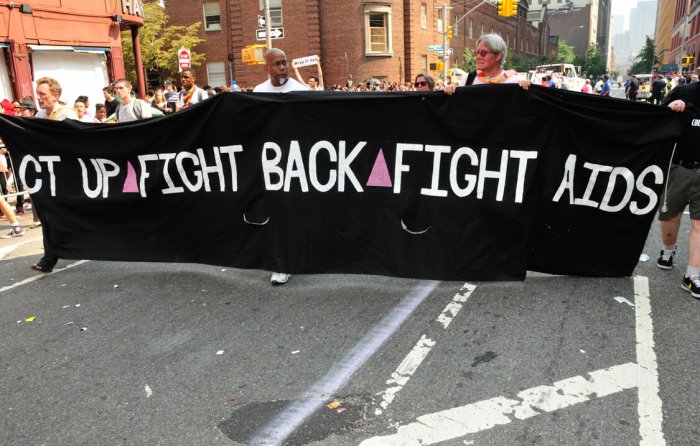The city health department's notice of the Chelsea clinic's closing. | DOHMH
The well-known Chelsea STD clinic on Ninth Avenue at 28th Street, run by the city’s Department of Health and Mental Health (DOHMH) in the neighborhood with New York’s highest HIV and syphilis infection rates, was shuttered for two to three years for renovations on March 21. Patients are being directed more than 70 blocks north to the Riverside STD clinic at 160 West 100th Street, leaving no such facilities in Manhattan south of there, but three in and around Harlem. Relocating clinic services in Midtown or Downtown was deemed to be “prohibitively expensive” by the department. The shuttered clinic was in an area that a few years ago lost its only hospital — St. Vincent’s in the West Village — to luxury condo development.
Community testing facilities are scrambling to take up the slack, with some in place and some not and with the department yet to promote them as alternatives.
The department poster on the closure only refers patients to West 100th Street.
Health department directs patients to West 100th Street as community clinics try to fill in
City Councilmember Corey Johnson of Chelsea, the out gay and openly HIV-positive heath committee chair, said he knew of the plans for the renovation last year and got the department to agree to remain partially open at the site while the work proceeded. But staff filed a grievance about unsafe working conditions from the construction — which were also “less than ideal for patients,” according to the department — and the facility was closed entirely.
Johnson said the cost of staying in the area “was deemed to be way too high.” He said he was able to get a funding increase of $150,000 for the Callen-Lorde Community Health Center in Chelsea and while that facility does provide low-cost screening services and more that are often free to patients with limited means, it does not offer the completely free service that the city clinic was providing.
Dick Gottfried, chair of the Assembly Health Committee who also represents Chelsea, said in a written statement that given the high syphilis infection rates in Chelsea and Hell's Kitchen in particular, “this is not a good time to make it more difficult to get testing. If people have to travel miles away, will they go untested and untreated, and will infected people continue infecting others?”
Gottfried said he will reach out to Dr. Mary Bassett, the city health commissioner, to explore possible downtown alternatives including Bellevue Hospital eight blocks east and the department’s headquarters at 125 Worth Street.
Johnson is also working with the Community Healthcare Network to get its mobile unit with free screening and treatment to set up outside the closed Chelsea clinic two days a week. The unit is available in the West Village on Mondays (from noon to 8 p.m. at Christopher Street and Seventh Avenue) and Fridays (on Christopher outside St. Veronica’s Church) and at 14th Street and Second Avenue on Tuesdays from 1-9 p.m. Freddy Molano, who heads up the group’s infectious disease and LGBT services, said he is “trying to secure the funding” for it. He hopes to have a second mobile unit “by early summer” thanks to the past efforts of the network’s late director, Catherine Abate.
“The reality is that people know [the Chelsea clinic] at that location and very few are aware it is closed,” Molano said. “When you have an STI, you need that service right away.” He is concerned people will not go to West 100th Street instead.
Callen-Lorde, at 356 West 18th Street, has long run a sexual health clinic and doesn’t just screen for STIs but treats them and is a big prescriber of pre-exposure and post-exposure prophylaxis (PrEP and PEP), two HIV prevention tools. While not a free clinic, executive director Jay Laudato said that “all services are offered without regard to one’s ability to pay.” Patients under 22 are served free “if using our adolescent program.”
“We can’t replace a public facility,” Laudato acknowledged, calling the Chelsea clinic “a vital access point, a destination for LGBT people.” He said it takes time, for instance, for a transgender person with HIV to build up trust with a facility — as many did with the Chelsea clinic — and they may hesitate to go elsewhere. Laudato is meeting with the health department on April 9 to discuss further options for the neighborhood.
Gay Men’s Health Crisis has the David Geffen Center for Testing at 224 West 29th Street that takes walk-ins Monday to Wednesday and sees people by appointment on Thursdays. That facility has now added syphilis screenings.
Anthony Hayes, a GMHC spokesperson, said of the free clinic’s closing, “We’re eager to work with the department of health to see many of these vital services continue in Chelsea.”
Another option for Lower Manhattan residents is the Mt. Sinai clinic at 275 Seventh Avenue, between 25th and 26th Streets, 12th floor, which does free HIV screening along with other health services for a fee. That clinic, which can be reached at 212-604-1701, is the successor to the St. Vincent’s HIV clinic.
Luis Santiago, a member of ACT UP/ NY, said, “We’re trying to get more services for testing in the gay community and this move by the department of health is in completely the other direction.” Expense “was not an excuse,” he said, given that infection rates in Chelsea “are the highest in the city.
Jay Kallio, a Chelsea resident and longtime LGBT and healthcare activist, used the Chelsea clinic when she got a needle stick in her apartment building’s garbage area and needed PEP. “Time was of the essence,” he said, “and Callen-Lorde was booked and couldn’t see me.”
Kallio said that moving the department’s clinic to West 100th Street “is not very good for the decrepit and disabled like myself. Getting up there will be prohibitive for me. Once you get sick, you’re not too ambulatory and getting on the subway is not only a schlep, it exposes me as someone on chemo to all kinds of flu.”
The department has outlined plans to tackle the steep rise in syphilis among men who have sex with men, particularly in Chelsea were the rate is six times that of the city at large, including distributing “millions of condoms,” “low/no cost STI screening and treatment,” “prophylactic treatment” for some high-risk individuals, and more. But none of it will be emanating from the familiar clinic fronted by Chelsea Park and the doughboy World War I monument dedicated “to the soldiers and sailors of Chelsea.”


































